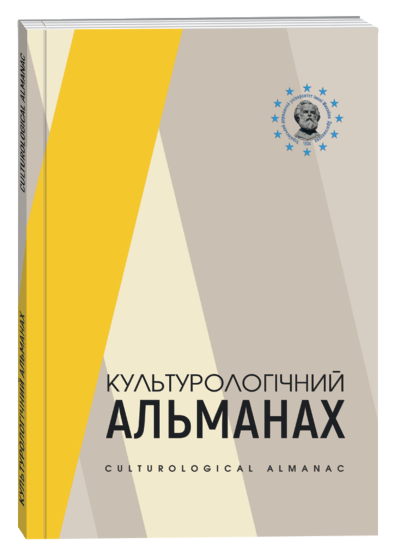UKRAINIAN-POLISH RELATIONS 1989–1991
DOI:
https://doi.org/10.31392/cult.alm.2022.4.8Keywords:
Iron Curtain, dissidents, Solidarity, Ukrainian Helsinki Union (UZH)Abstract
The Iron Curtain divided Europe not only physically with concrete and barbed wire fences, but also divided Europe into people who lived under a disenfranchised totalitarian regime and people who enjoyed democratic freedoms. One can agree with Anne Applebaum’s opinion that the Iron Curtain was not only a metaphor, walls, fences, and barbed wire literally separated Eastern Europe from the West. In 1961, when the Berlin Wall was being built, it seemed that these barriers could last forever. Unfortunately, the Ukrainian and Polish peoples found themselves behind the Iron Curtain. But despite all these obstacles, Polish and Ukrainian dissidents managed to find an opportunity to communicate with each other and support each other in this difficult struggle against the communist regime for human rights. Although Poland was formally independent, it actually had the status of a liege state of the Soviet Union. It seemed that the existence of the Iron Curtain was something permanent and changeless. Hardly anyone could have imagined that this situation could change in the foreseeable future. People who believed in the possibility of change and the moral necessity of resistance were called dissidents by the Western press. Dissidents were representatives of various circles: intellectuals, workers, and students. Ukrainian and Polish oppositionists, despite the oppressive realities and constant control, were establishing contacts with each other and joining forces in the fight against the totalitarian regime. They were well aware that only by uniting can they throw off the yoke of communism, declare independence and return to the path of democracy and freedom. The history of Ukrainian-Polish relations shows that when Ukraine and Poland unite, they will surely win in the struggle for freedom and democracy. Still, like 30 years ago, Poland is once again becoming the main ally of Ukraine in the fight against Russian imperialism for democracy, rights, and freedoms. Among researchers, there was no common ground on the causes of the collapse of the USSR. However, all agree that the dissidents played an important role in this process. The importance of reconciliation and good relations with Ukrainians was also mentioned by Polish intellectuals: Jerzy Giedroyć, Juliusz Mieroszewski, and Jan Nowak-Jeziorański. The idea of Jerzy Giedroyć’s project was to liberate all nations from the totalitarian Soviet regime. On the other hand, Giedroyć’s Eastern policy amounted to a political union of free Ukraine, Belarus, Lithuania (ULB), and Poland. As a matter of fact, some elements of Giedroyć’s concept became part of Poland’s Eastern policy after 1989. The aim of the article is to analyze Polish-Ukrainian relations in 1989–1991.
References
Berdychowska B. (2007). Współpraca opozycji w Polsce i na Ukrainie/Szlack do wolności. XXV lat Solidarności Polsko-Czesko-Słowackiej. 209 s.
Kijów-Warszawa (1990). Gazeta Wyborcza. URL: https://classic.wyborcza.pl/archiwumGW/6009176/Kijow-Warszawa
Łomanowski A. (1990). Ukraina liczy na nas. Gazeta Wyborcza. URL: https://classic.wyborcza.pl/archiwumGW/6010835/Ukraina-liczy-na-nas
Polska-Ukraina Gazeta Wyborcza (1991). URL: https://classic.wyborcza.pl/archiwumGW/6059219/POLSKA-UKRAINA
Przez Polskę do cywylizacji (1991). Gazeta Wyborcza. URL: https://classic.wyborcza.pl/archiwumGW/6044809/Przez-Polske-do-cywilizacji
Ukraińskie Święto (1989). Gazeta Wyborcza. URL: https://classic.wyborcza.pl/archiwumGW/6004667/Ukrainskie-swieto
Solidarność в гостях у Вибору (1989). Вибір. 11 листопада. С. 7–8.
Щотижнева хроніка Української Гельсінської cпілки (1989). Інформатор. 8 серпня. № 36. С. 56–59.
Потічний П. (1990). Зустріч українських і польських парламентарів. Сучасність. Ч. 9. С. 125–127.
Шевченко О. (2021). Наш вибір. URL: https://pl.naszwybir.pl/lech-walesa-polska-i-ukraina-sa-na-siebie-skazane/








